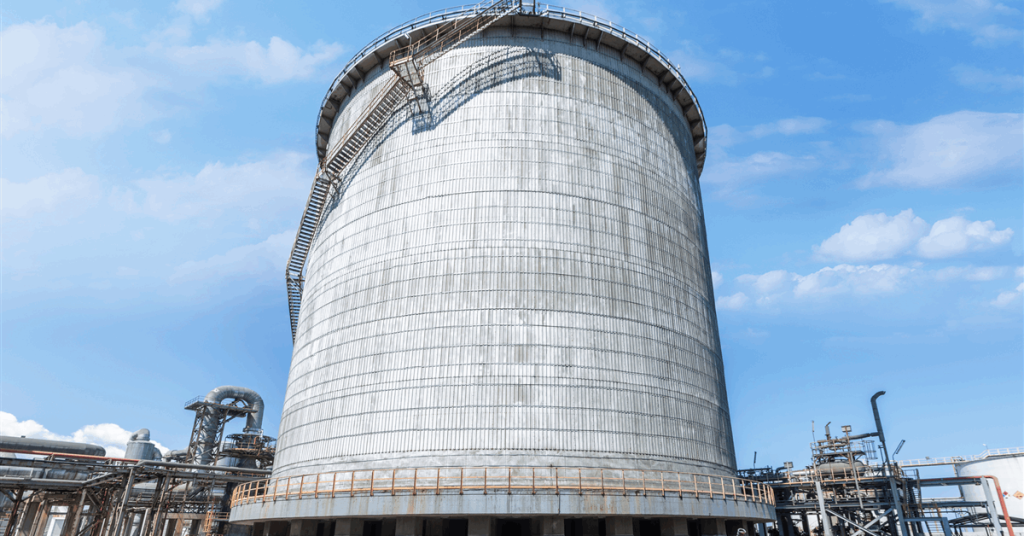CF Industries Holdings Inc. said Monday it had fired up the dehydration and compression unit of its carbon capture and storage (CCS) project with Exxon Mobil Corp. at its Donaldsonville complex in Louisiana.
The global hydrogen and nitrogen products manufacturer expects the project to curb carbon dioxide (CO2) emissions from its operations by up to two million metric tons per annum (MMtpa). ExxonMobil will handle the transport and storage of the captured emissions under a deal with CF Industries signed 2022.
“On an interim basis, ExxonMobil is storing CO2 from the Donaldsonville Complex in permanent geologic sites through enhanced oil recovery”, Northbrook, Illinois-based CF Industries said in an online statement Monday. “Upon receiving its applicable permits, ExxonMobil plans to transition to dedicated permanent storage, starting with its Rose CCS project. Rose is one of many dedicated permanent storage sites ExxonMobil is developing along the Gulf Coast to expand its integrated CCS network”.
Earlier this month the United States Environmental Protection Agency issued a draft Class VI permit for three injection wells for Rose, located in Jefferson County, Texas. CF Industries said final permits could be issued this year.
Rose will store captured CO2 from industrial emitters in the region on over 13,000 acres of land, 0.5-1.5 miles below the surface. The storage site would be connected to an 18-mile pipeline.
CF Industries president and chief executive Tony Will said, “By starting permanent sequestration now, we reduce our emissions, accelerate the availability of low-carbon ammonia for our customers and begin generating valuable 45Q tax credits”.
CF Industries expects to produce about 1.9 MMtpa of low-carbon ammonia when the CCS project starts service.
As part of the project, ExxonMobil signed an agreement with EnLink Midstream LLC in 2022 to use the latter’s pipeline network.
In 2024 ExxonMobil penned another agreement with CF Industries to transport and permanently store up to 500,000 metric tons a year of CO2 captured from CF Industries’ complex in Yazoo City, Mississippi.
The parties expect the project to reduce the Yazoo site’s CO2 emissions by up to 50 percent. Startup is targeted for 2028.
In April 2025 ExxonMobil said it has brought in Calpine Corp. as its sixth CCS customer, raising its total CO2 under contract to about 16 MMtpa.
The agreement with the power producer involves the transport and permanent storage of up to two MMtpa of CO2 captured from Calpine’s Baytown Energy Center, a co-generation facility near Houston.
“The CO2 from Calpine’s facility will tie into ExxonMobil’s CO2 pipeline system, the largest in the world, which is strategically located along the U.S. Gulf Coast and supports enhanced oil recovery as well as permanent CO2 sequestration”, a joint statement said.
To contact the author, email jov.onsat@rigzone.com
Generated by readers, the comments included herein do not reflect the views and opinions of Rigzone. All comments are subject to editorial review. Off-topic, inappropriate or insulting comments will be removed.
element
var scriptTag = document.createElement(‘script’);
scriptTag.src = url;
scriptTag.async = true;
scriptTag.onload = implementationCode;
scriptTag.onreadystatechange = implementationCode;
location.appendChild(scriptTag);
};
var div = document.getElementById(‘rigzonelogo’);
div.innerHTML += ” +
‘‘ +
”;
var initJobSearch = function () {
//console.log(“call back”);
}
var addMetaPixel = function () {
if (-1 > -1 || -1 > -1) {
/*Meta Pixel Code*/
!function(f,b,e,v,n,t,s)
{if(f.fbq)return;n=f.fbq=function(){n.callMethod?
n.callMethod.apply(n,arguments):n.queue.push(arguments)};
if(!f._fbq)f._fbq=n;n.push=n;n.loaded=!0;n.version=’2.0′;
n.queue=[];t=b.createElement(e);t.async=!0;
t.src=v;s=b.getElementsByTagName(e)[0];
s.parentNode.insertBefore(t,s)}(window, document,’script’,
‘https://connect.facebook.net/en_US/fbevents.js’);
fbq(‘init’, ‘1517407191885185’);
fbq(‘track’, ‘PageView’);
/*End Meta Pixel Code*/
} else if (0 > -1 && 91 > -1)
{
/*Meta Pixel Code*/
!function(f,b,e,v,n,t,s)
{if(f.fbq)return;n=f.fbq=function(){n.callMethod?
n.callMethod.apply(n,arguments):n.queue.push(arguments)};
if(!f._fbq)f._fbq=n;n.push=n;n.loaded=!0;n.version=’2.0′;
n.queue=[];t=b.createElement(e);t.async=!0;
t.src=v;s=b.getElementsByTagName(e)[0];
s.parentNode.insertBefore(t,s)}(window, document,’script’,
‘https://connect.facebook.net/en_US/fbevents.js’);
fbq(‘init’, ‘1517407191885185’);
fbq(‘track’, ‘PageView’);
/*End Meta Pixel Code*/
}
}
// function gtmFunctionForLayout()
// {
//loadJS(“https://www.googletagmanager.com/gtag/js?id=G-K6ZDLWV6VX”, initJobSearch, document.body);
//}
// window.onload = (e => {
// setTimeout(
// function () {
// document.addEventListener(“DOMContentLoaded”, function () {
// // Select all anchor elements with class ‘ui-tabs-anchor’
// const anchors = document.querySelectorAll(‘a .ui-tabs-anchor’);
// // Loop through each anchor and remove the role attribute if it is set to “presentation”
// anchors.forEach(anchor => {
// if (anchor.getAttribute(‘role’) === ‘presentation’) {
// anchor.removeAttribute(‘role’);
// }
// });
// });
// }
// , 200);
//});

